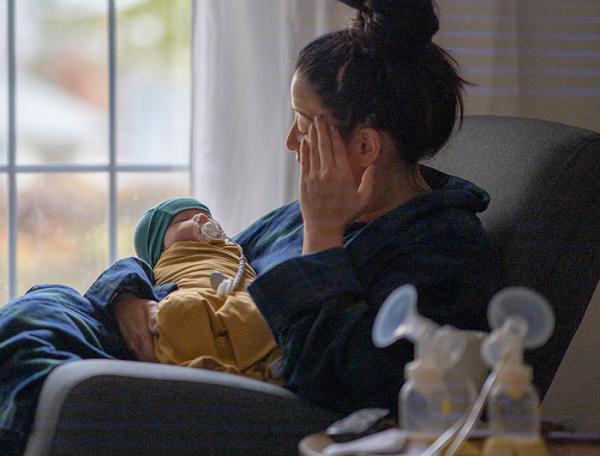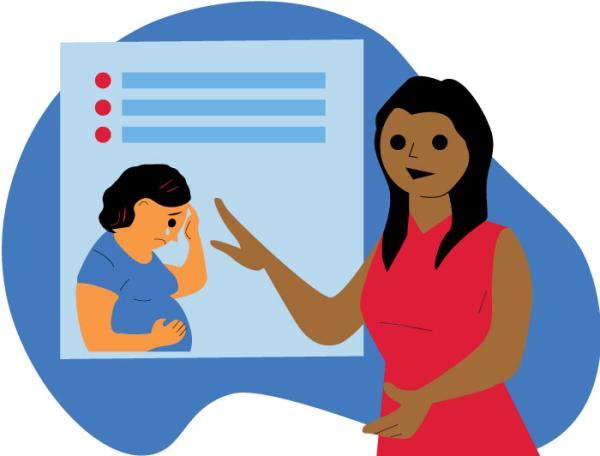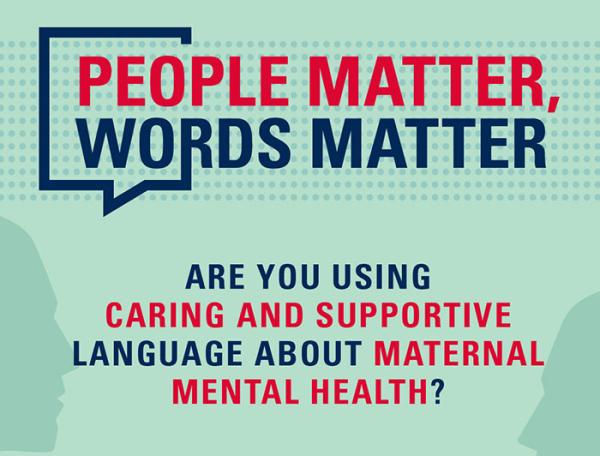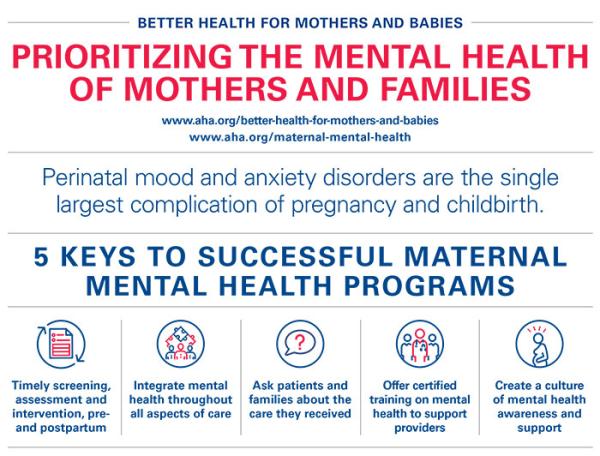Maternal Mental Health
Mental health and substance use issues are the leading underlying causes of maternal morbidity and mortality. Maternal mental health conditions, such as depression, anxiety, and substance use disorder are the most prominent complications of pregnancy, child birth, and postpartum; affecting 1 in 5 women. According to the CDC, 1 in 8 women experience postpartum depression, and 50% of them are untreated. AHA resources below point to different strategies hospitals and health systems developed to address maternal mental health needs and conditions.
Our efforts also recognizes the importance of promoting good mental health for children and adolescents. Visit AHA's Behavioral Health and Child and Adolescent Mental Health webpages for more resources.
Get Help Now
If you or a loved one are experiencing an emotional crisis or thoughts of suicide, support is available. The following services provide free, bilingual, confidential support and are available 24 hours a day, seven days a week.
The National Maternal Mental Health Hotline can provide emotional support to pregnant and new moms. Please call or text 1-833-852-6262 (1-833-TLC-MAMA).
For those experiencing a suicidal crisis, please call or text 988 or visit the 988 Suicide & Crisis Lifeline.

with Woman’s Hospital, Baton Rouge, La., and Yale New Haven Children’s Hospital
Blog discusses strategies to address the unique behavioral health challenges and demands of pregnant women and new mothers.

with Women & Infants Hospital
Podcast discusses the stigma surrounding maternal mental health, the challenges new mothers face, and the ROSE program and other postpartum depression prevention initiatives.

Woman’s Hospital in Baton Rouge, La., and the University of Colorado Hospital Anschutz Medical Campus
Blog highlights unique efforts of two hospitals addressing perinatal mental health disorders.

with Woman’s Hospital and the University of Colorado Hospital
Learn strategies and action steps hospitals and health systems can take to prioritize postpartum mental health and improve outcomes.

with Johns Hopkins Bloomberg School of Public Health and University of New Mexico Health Sciences Center
This podcast highlights the perspectives needed to provide maternal mental health care for Indigenous peoples, and the importance of person-centered care.

with Endeavor Health
The Perinatal Depression Program provides avenues for parents to seek mental health help and features a patient story about her journey through perinatal depression.

with UMass Memorial Health
UMass Memorial equips clinicians with tools and guidance to better treat moms with mental health conditions.

with SSM Health St. Mary’s Hospital
WISH Center experts share how their approach is helping to protect the health of new mothers and their babies.

with Ascension Alexian Brothers Behavioral Health Hospital
Intensive outpatient perinatal care program accommodates new moms who need an elevated level of care.

with St. James Hospital, Intermountain Healthcare
"First 1,000 Days of Life" Initiative provides wraparound services for at-risk new moms with behavioral health conditions. Hear a former program participant’s journey to building a healthy life for herself and her new family.

Infographic outlines statistics on the impact of perinatal mental health and shares strategies and resources hospitals can use to address the mental health needs of new moms.

Poster focuses on using compassionate language when discussing maternal mental health.

Blog explores actions hospitals can take to address the mental health of Black pregnant and postpartum people.

Five ways hospitals can prioritize maternal mental health.

